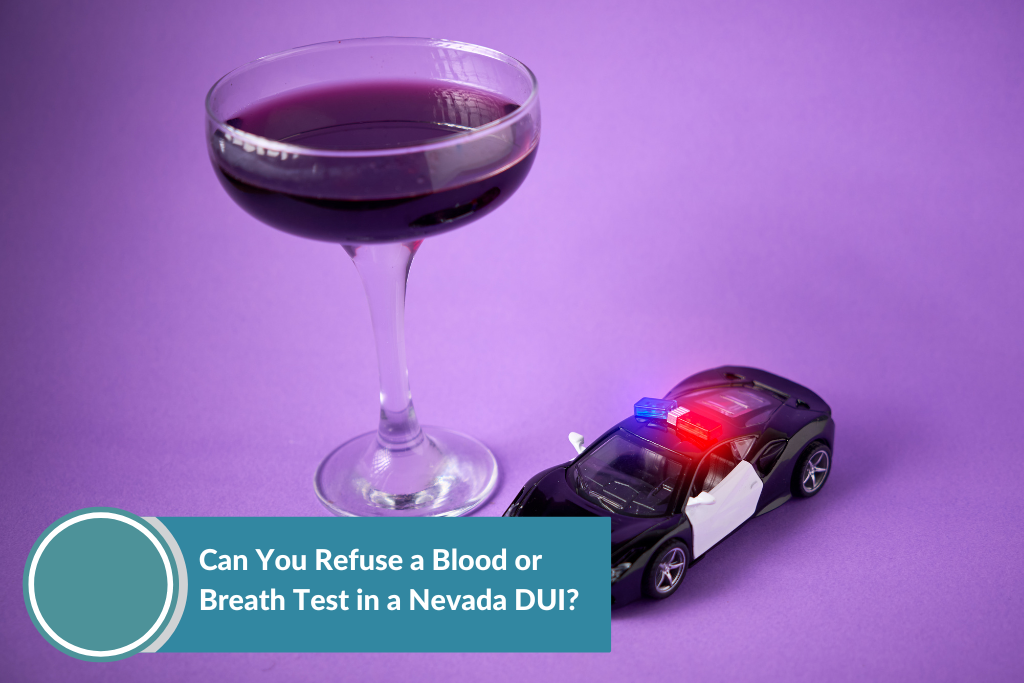
Being stopped for a potential DUI in Nevada is stressful. One of the first questions drivers have is, “What happens if I decline a breathalyzer?” Will you be forced to take a test? Will you be able to drive away if you refuse?
Understanding your rights and obligations under Nevada’s laws is essential for every driver on the road. Refusing a DUI test has serious consequences. You can make an informed choice when you know what’s at stake.
What You Need to Know About Nevada’s Implied Consent Law
Nevada has an implied consent law that applies to every driver, regardless of whether you’re licensed in this state or another. This law states that by operating a vehicle in the state, you automatically agree to submit to chemical testing if a law enforcement officer has probable cause to suspect you’re driving under the influence. In Nevada, most drivers are considered to be under the influence if their blood alcohol concentration (BAC) is 0.08 percent or above. The limit lowers to 0.04 percent for commercial drivers and 0.02 percent for drivers under 21.
So, what does that mean, in practical terms?
- You have consented to a breath or blood test by simply driving in Nevada.
- Law enforcement can request a breathalyzer or blood test if they suspect impairment.
- You can technically refuse, but doing so triggers legal consequences.
Nevada law has serious consequences for DUIs and refusals. Implied consent applies to both breath and blood tests, which means that the penalties for refusal are similar, regardless of which type of test you decline.
Understanding implied consent is important because the law assumes your cooperation once an officer believes you’re driving impaired. The decision to refuse a test can have both administrative and courtroom implications.
Consequences of an Implied Consent Refusal Under Nevada Law
What happens if you decline a breathalyzer when pulled over? Can you refuse a blood alcohol test?
Refusing to submit to a DUI test triggers several penalties. These consequences affect your driving privileges immediately. They can also influence your DUI court case. You can expect to face several administrative penalties through the DMV:
- First refusal – 12-month driver’s license suspension
- Second refusal within seven years – 36-month driver’s license suspension
In addition to these suspensions, you should be aware that refusal may be used as evidence in your DUI case. Refusing a test isn’t a separate criminal charge, but it does complicate your situation. Prosecutors often view refusal as an indication you knew you were impaired, even if you weren’t. This assumption can affect plea negotiations or trial strategy. Plus, even if you are eventually found not guilty of DUI, your license can still be suspended.
The Machine Refusal – When an Inadequate Breath Sample is Provided
Nevada law also addresses situations where a driver attempts a breath test but can’t (or won’t) provide a sufficient sample. The police will then ask you to take a blood test. If you refuse, it’s called a machine refusal or inadequate sample refusal.
Generally, an insufficient sample is legally treated as a refusal. The consequences are the same as if you had refused to take the breathalyzer test—including license suspension. In short, providing a partial or incomplete sample won’t help you avoid penalties. Some drivers try to “partially comply” in hopes of avoiding consequences, but that’s not a good strategy—especially if you have been drinking or using drugs.
Can the Police Force You to Be Tested?
So, can the police force you to be tested? In Nevada, officers can’t physically force you to submit to a breath or blood test—at least, not without a warrant. However, that doesn’t mean you can escape consequences and go home just by refusing.
First, roadside breath tests require cooperation. You can decline, but refusal triggers DMV penalties, including a license suspension. Second, the police can ask for a warrant if you refuse to be tested. Courts generally approve blood test warrants when there’s enough probable cause to suspect you were driving under the influence of alcohol or drugs. You’ll be forced to take a test if the warrant is granted.
This means that refusing generally won’t prevent a test. Officers can pursue a court-ordered blood test. However, your original refusal still counts for administrative license suspension purposes. Understanding this distinction is important when deciding how to respond during a DUI stop.
Will Refusing to Be Tested Have an Effect on Your DUI Case?
Refusing a DUI test affects more than just your license. It can influence how prosecutors frame your case and how judges or juries perceive your actions. For example:
- Evidence in court – Refusal can be used to suggest you knew you were impaired. If your case goes before a jury, that can influence them to render a guilty verdict.
- Impact on plea negotiations – Prosecutors may take a harder stance if your refusal is on record. They’ll be less likely to negotiate with your attorney, which means you’re unlikely to get reduced charges or alternative sentencing resolutions. However, every case is different, and this doesn’t mean you’ll automatically be convicted.
- Administrative vs. criminal consequences – Your license suspension occurs regardless of the court outcome.
Your DUI defense lawyer can question whether the officer had probable cause to arrest you for DUI and whether they followed the proper procedures. If law enforcement failed to follow the rules, the evidence from a subsequent court-ordered test could be suppressed.
How much a refusal affects your case depends on the circumstances, which is why consulting an attorney quickly can make a significant difference. Here are some common refusal scenarios:
- A first-time DUI suspect refuses a breath test. Their license is automatically suspended for 12 months. Prosecutors may use the refusal in court, but may need other evidence to secure a DUI conviction.
- A driver provides an inadequate breath sample. The DMV treats this as a refusal, resulting in the same administrative penalties as a full refusal. The prosecution can use this as evidence for the case, but it’s less likely to be enough to secure a conviction on its own.
- A driver refuses a blood test without a warrant. Law enforcement may obtain a warrant to collect blood, but the initial refusal still triggers license suspension—and the prosecution can use that to show consciousness of guilt.
Contact a Nevada DUI Test Refusal Attorney From Adras & Altig Right Away
Refusing a blood or breath test in Nevada comes with serious consequences, but that doesn’t mean every refusal results in a conviction. An experienced Nevada DUI attorney can help you prepare a defense against DUI charges. Contact Adras & Altig today for guidance on handling a DUI test refusal in Las Vegas.

